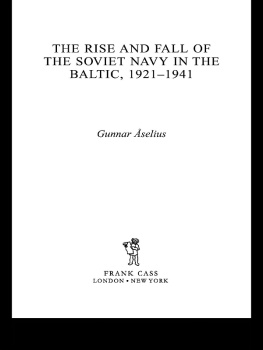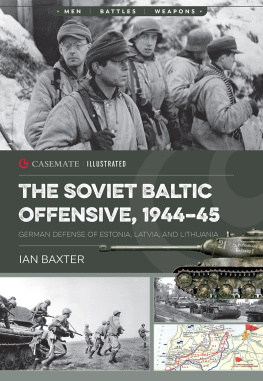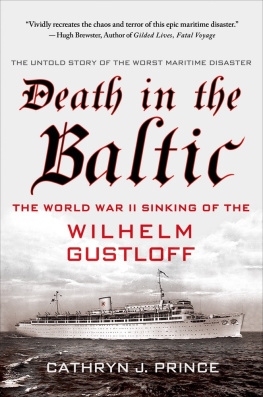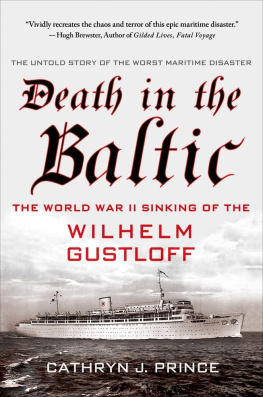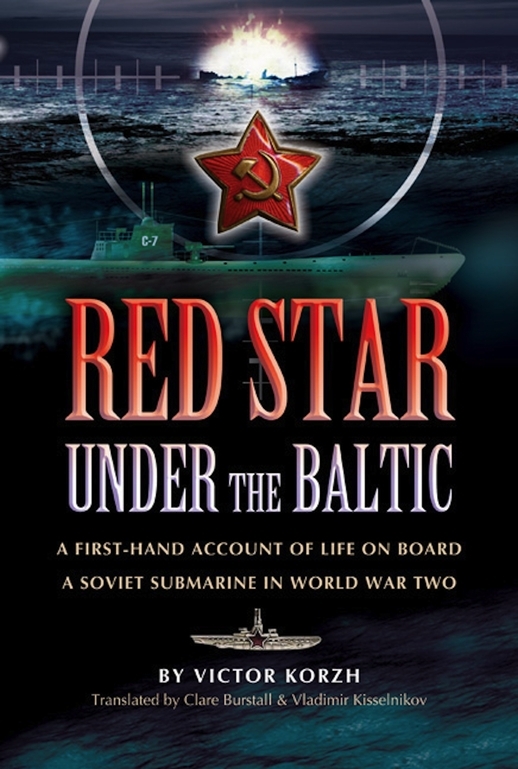Operation NS
In the evening we were going to go to La Traviata ; Lieutenant Captain Loshkariov had got hold of three tickets. Put warmer clothes on, he had warned Ilyin and me, and I shall wear my felt boots as well, seeing that Im on patrol duty immediately after the performance.
The cloakroom was not operating. In the auditorium everyone was wearing greatcoats and sheepskin jackets; hats with earflaps on their heads. When we had taken our seats, I risked removing my hat, but replaced it at once: my ears were freezing.
A mist was swirling about in the auditorium from the hundreds of people breathing. Muffled up in overcoats and scarves, the members of the orchestra were blowing on their fingers. But the conductor rubbed his hands, waved his baton, and the very first strains of the overture made us forget everything: we no longer heard the booming rumble of the guns firing nor the fitful crackle of the shells bursting.
The brocade curtain rose smoothly. Loshkariov grabbed me by the arm, This is senseless! Violetta had darted out onto the stage gay, full of joie de vivre , the way she really should be. But my heart ached for her, in a flimsy dress, with bare shoulders, fragile and appealing; what must she have been going through at that moment! I know that I was not the only one who wanted to tear off his greatcoat and shield the singer from the cold. But Violetta was living in a different world. Her voice, melodious and poignant, filled the enchanted auditorium. And Alfredo, graceful and elegant, was passionately declaring his love for her, a love which neither the years nor the vicissitudes of life could ever cool.
Deeply moved, we were walking along the street afterwards, not even noticing the cruel frost, nor the shifting snowdrifts, nor the trams stuck fast in the snow, riddled with shrapnel, nor the crimson reflections of the fires. Somewhere something was on fire again. Fires had become more frequent. They were set off not only by incendiary bombs, but by crude little heating-stoves too. A weakened person would throw the last fragments of a chopped-up chair into a red-hot stove, would become drowsy in the warmth and fall asleep for all eternity. It no longer mattered to him that hot embers were dropping from the open stove door onto the floor and that the whole room was already ablaze. And it was becoming increasingly difficult to put the fires out: the water-supply had frozen up; they were lugging water from the ice-holes in the Neva and the Fontanka.
Senseless! Loshkariov kept repeating. He was still thinking about the half-naked singer in the unheated theatre.
Selfless, Ilyin corrected him. She warms the Leningraders with her singing. The Divisional Navigator was, as ever, precise. They dont come more precise than him.
The next day I was sent for by the commander of the submarine brigade, Captain Second Rank A.V. Tripolsky: An urgent task for you. The city needs our help. Take two of the more robust engine-room mechanics and make your way to the Serafimovskoye Cemetery. Something has gone wrong with an excavator there.
Well be off to the cemetery then! I replied. I went to my boat, chose the sturdiest of the lads malnutrition was telling on us too, and we picked up some tools. We stepped out through the snowdrifts.
What are we going to do there? asked the sailors.
Repair an excavator.
And have you had to do this before?
Never in my life.
Us neither, sighed the sailors.
Never mind, it was no great problem. In Leningrad we were doing many things for the first time. The siege would teach us how to do everything. Something else was bothering me: whether I had understood the Brigade Commander correctly. Well, an excavator fair enough. But how did the cemetery come into it?
We overtook a line of people. Bundled up to their very eyes, they were shuffling along bent over and dragging sleds behind them, both big ones and absolutely tiny ones; childrens ones. Feet in woollen socks had poked out from under a short flannel blanket and were being dragged through the snow. And there was an arm drooping from a sled. Coiled waxen fingers raked the snow...
Lumbering heavily in the ruts, a truck rumbled by. After it another and yet another. We tried to thumb a lift; not one of them stopped. My sailors were beginning to lose their tempers. They showered the next truck with the choicest of swear words. The vehicle halted; the driver, wearing a grease-stained quilted jacket, swaying with fatigue, got down from the cab and glared at us angrily. Why are you kicking up such a fuss? Take a look! He drew the tarpaulin aside. Where would you sit? On their heads or on their legs?
We recoiled: in the truck bed were corpses. We didnt ask anyone else to give us a lift, although it was a fair distance beyond Novaya Derevnya.
A lot of people were milling about at the cemetery truck-drivers, paramedics, housing management and militia representatives, relatives of the dead. Eventually I tracked down the man in charge. He was glad to see me; he sent for the driver. We went over to the excavator, its bucket collapsed helplessly in a trench. We set to work. We replaced the worn cables and started up the engine which had gone cold. The pale-faced, skinny driver clambered up into his seat with a struggle and gripped the levers. The steel bucket scooped some frozen sand up and emptied it into a deep pit, on the bottom of which the bodies of men, women and children with or without a covering sheet were laid out in rows. And the trucks kept on coming. The paramedics would produce the lists, unload the vehicles. A new truck would roll up to take the place of the one that had left. They were bringing them in from the military and civilian hospitals, the mortuaries, the housing estates...
Side by side at the bottom of the communal grave were ranged the soldier who died of his wounds, the workman who stood at his lathe until his last breath, the old man who couldnt make it to the shop to collect his tiny ration of bread, and the little girl with plaits who was caught by an enemy shell in the doorway of her house... They were all being buried together, because in besieged Leningrad everyone was a fighter, regardless of profession, sex or age.
We stood by the huge grave for a long time. The frost scorched our cheeks as it did before. But we had removed our hats. May I burn in hell, if I ever forget this!
Oh, how impatient we were then to go to war! Each of us would have given his life without a second thought, simply to repay the enemy for these victims, for the grief and wounds of Leningrad! But the battle was still a long way off. The Gulf of Finland had frozen over. Our submarines were held fast in the Neva ice. For the time being it only remained for us to share with besieged Leningrad all its sorrows and to prepare ourselves for the fight to come.
The ships of the brigade had entered the Neva in late autumn. They had arrived after carrying out patrols, after the bitterness of retreat, after the loss of their bases Libava, Riga, Tallinn.
The enemy was bombing and shelling the city. He directed his blows against our ships, too. The naval gunners were on watch around the clock, helping the ground forces anti-aircraft batteries to repel air attacks.
A new menace had appeared as well. During a routine air-raid alert, Rim Yulievich Gintovt, the Chief Engineer Officer for one of the submarine divisions, had not gone down to the air-raid shelter but had stayed in the submarine shore base. Having thrown his greatcoat over his shoulders, Rim Yulievich had flung open the window of his fourth-floor office. Somewhere over to one side bombs were screaming down; everything around was shaking from the explosions. Suddenly the spotters of the anti-aircraft defence post which had been set up on the roof of the base building showed signs of alarm and trained their machine guns on a parachute dropped from a plane. Considerably higher up and further away over the Neva, a second canopy could be seen. Both were coming down at an unusually rapid rate. When the nearer parachute was about 100 metres from the ground, Gintovt realized what was going on. He shouted loudly to the spotters: Get down! Its a mine!




